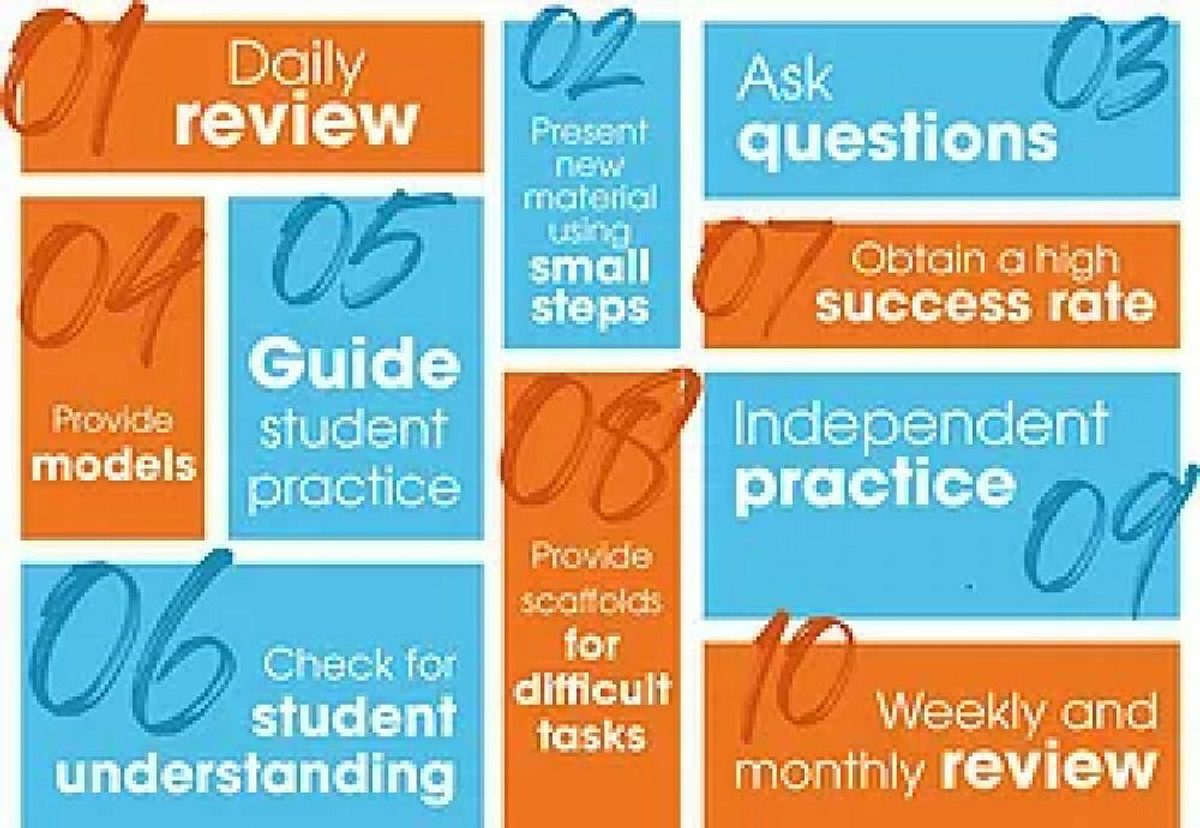
Blog -
Behaviour – Back to Basics
Tips for going back to basics and preventing misbehaviour from happening.
Share on:

by Shotton Hall Research School
on the

Two years ago, during a session on assessing starting points of learners in lessons, a trainee described how they had seen a teacher using questions based upon previous topics at the start of each lesson. The strategy that was being used included a question about last lesson, last week and last month’s learning.
At this time, I was using connect tasks that linked into students’ life experiences with the aim of making the learning in the lesson relevant. Inspired by the strategy, and how this would link into the concept of interleaving (Learning Scientists), that I had been reading about, I decide to start each lesson with questions based upon Last Lesson, Last topic, Last year and This Lesson. I choose questions based upon concepts that were ‘big ideas’ in science (Harlen, 2010)-which I mapped across Key Stage 3 and Key Stage 4, areas of common misconception and concepts that students had issues with either in their written work or in tests. As I continued with this strategy, I found that students were able to recall more information and less recapping was required in lessons.
Over the past year, when reading Tom Sherrington’s (2019) ‘Rosenshine’s Principles in Action’ and Shaun Allison’s (2017) ‘Making Every Science Lesson Count’, I realised that there was an evidence and theoretical base to the strategy I was using. By using Stephen Brookfield’s (2017) ‘Lens of Theory’ for critical reflection, I realised that I was using retrieval practice.
Through my work as part of the Research School, I have extended my ‘Lens of Theory’ to critically reflect upon and develop my use of retrieval practice.
Roediger and Karpicke’s (2006) research showed that for long term retention four sessions of study provided 40% recall, whereas initial study followed by three retrieval sessions provided a 62% recall.
Roediger and Butler (2011) suggest that the optimum number of knowledge retrieval is between five and seven; the first retrieval should be shortly after initial learning, with subsequent retrievals occurring over equally spaced intervals; and that the correct answer should be provided after the attempt to increase the benefit of testing.
Sweller’s (1994) cognitive load theory recommends that learning can be maximised by reducing the intrinsic cognitive load of the lesson by retrieving previous knowledge of the topic.
I have integrated these notions into my practice to ensure that key information is covered at least five times across the space of a year, retrieval practice replaces teacher recap of previous ideas at the start of a lesson, and using a link to the lesson question to reduce cognitive load in the lesson. As a Whole School Strategy, Retrieval practice is now embedded into the starting routines of every lesson utilising the following principles:
1) Not more than five minutes – to maximise the time for learning new material;
2) All students must be involved in the task – to ensure that all students gain benefit from the act of retrieval;
3) Completed in silence as a closed book activity – to focus on the act of retrieving information;
4) Easy for students to self-mark – to ensure that the correct answers are given without increasing the workload of teachers.
From a simple idea raised in an ITT seminar session, retrieval practice has become an integral part of my classroom practice. The evidence and theoretical base available has consolidated and developed my practice towards a strategy that students are responding well to.
Emma Whillis (Evidence Lead)
References
Allison, S. (2017) Making every science lesson count. Carmarthen, Wales: Crown House Publishing Limited.
Brookfield, S. (2017) Becoming a critically reflective teacher. San Francisco, California: Jossey-Bass.
Harlen, W. (2010) Principles and big ideas of science education. Available at: https://www.ase.org.uk/bigidea… (Last accessed 06/11/19).
Learning Scientists (no date) Retrieval practice. Available at: https://www.learningscientists… (Last accessed 06/11/19).
Roediger, H. and Butler, A. (2011) The critical role of retrieval practice in long-term retention, Trends in Cognitive Science, 15 (1), pp.20 – 27.
Roediger, H. And Karpicke, J. (2006) Test enhanced learning: Taking memory tests improves long-term retention, Psychological Science, 17, pp.249 – 255.
Sherrington, T. (2019) Rosenshine’s principles in action. Woodbridge: John Catt Educational Ltd.
Sweller, J. (1994) Cognitive load theory, learning difficulty, and instructional design, Learning and Instruction, 4 (4), pp.295 – 312.

Blog -
Tips for going back to basics and preventing misbehaviour from happening.

Blog -
Leading reading in secondary is one of the trickiest – yet most important – jobs in school. Read on for useful tips!

Blog -
Alicia McKenna, Director of Research and Training takes a look at the meteoric rise of this North East comprehensive school.
This website collects a number of cookies from its users for improving your overall experience of the site.Read more